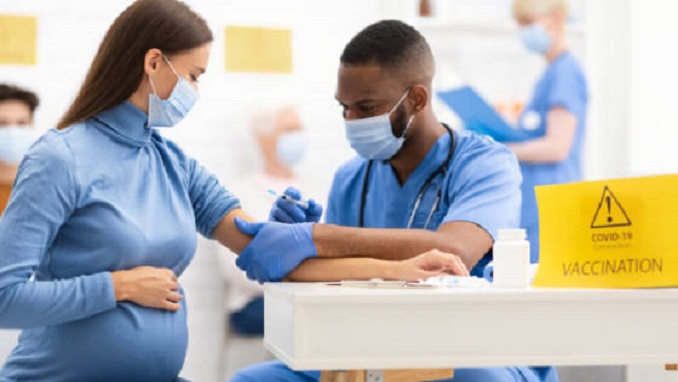COVID-19 vaccines using mRNA technology are not only safe for expectant mothers and their babies but also create protective antibodies in both mothers and children, as well as in mother’s milk, according to recent studies.
The most recent study, published last week by the US Centers for Disease Control and Prevention (CDC), shows that women who took the COVID-19 jab during pregnancy are likely to pass some form of immunity against the virus to their babies. The research analyzed data on 379 infants hospitalized for various reasons, including COVID-19, at 20 pediatric hospitals across 17 U.S, states from July 1 through Jan. 17.
The CDC study found that babies whose mothers received the full two doses of an mRNA vaccination were 61% less likely to be hospitalized for the COVID-19 in the first six months of life. According to the study, “effectiveness of a completed two-dose COVID-19 vaccination series early in pregnancy (first 20 weeks) was 32% and later in pregnancy (21 weeks through 14 days before delivery) was 80%.”
A similar finding of protection being passed on from mothers was published earlier this month by JAMA. That study showed that mRNA COVID-19 vaccines received during pregnancy “generate functional anti-spike IgG antibodies in maternal circulation that are detectable in umbilical cord blood at birth and can protect the newborn and infant from COVID-19.” It found that 98% of infants whose mothers were inoculated during pregnancy still had detectable levels of protective antibodies two months after birth. However, that percentage decreased to 57% six months after birth.
Antibodies in breast milk of vaccinated mothers
Two additional studies showed that the mother’s immunity from both vaccination and prior infection of COVID-19 produces an antibody response in the mother’s breast milk.
Earlier this month, Obstetrics & Gynecology published a study showing that “milk from Covid-19-immunized women neutralized severe acute SARS-CoV-2 spike and four variants of concern, primarily driven by anti-RBD IgG.” One of the most important aspects of these results is that the anti-RBD IgA from the milk is transferred to breastfed infants with “the potential to confer passive immunity against SARS-CoV-2 .”
JAMA Pediatrics, published a study late last year showing that mothers who were previously infected with COVID-19 and those who received a vaccination produced breast milk with different types of active SARS-CoV-2 antibodies. In both cases, the mother’s milk offered protection. The study, co-authored by the University of Rochester Medical Center and New York University’s researchers, showed that “antibody response in milk after infection was IgA dominant and highly variable, while mRNA vaccination was associated with a robust IgG response, which began to decline by 90 days after the second vaccine dose.”




